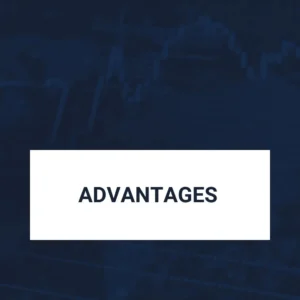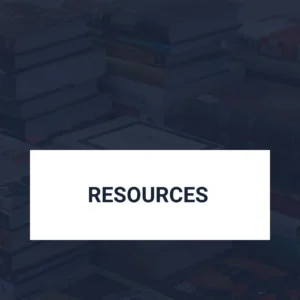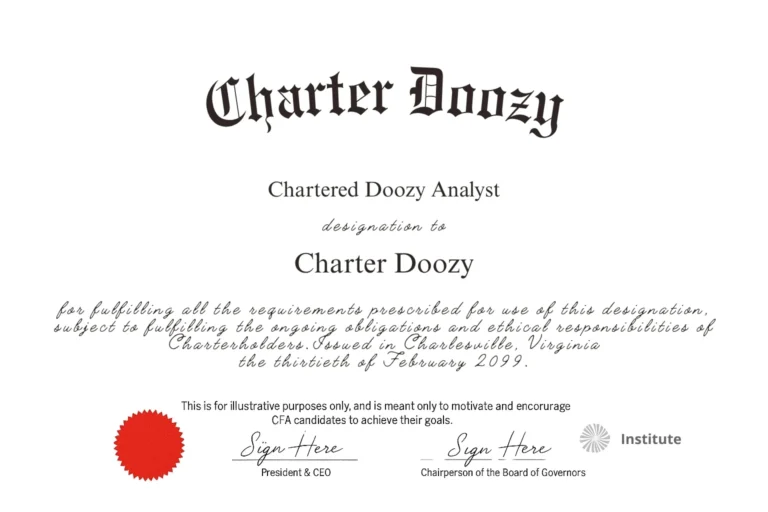Sales & Trading is one of the most dynamic and fast-moving career paths in the world of finance. It’s a front-row seat to global markets—where news, data, and risk collide in real time. Every day brings fresh challenges, new opportunities, and high-stakes decisions.
For CFA candidates who enjoy thinking on their feet, staying ahead of trends, and solving problems under pressure, Sales & Trading offers a rewarding and adrenaline-filled career. Whether you’re advising clients on market strategies or managing a trading book, the work demands a sharp mind, clear communication, and the ability to stay cool in volatile environments.
This article explores what it really means to work in Sales & Trading. We’ll break down the roles, the skills that matter, how the CFA curriculum aligns, and what it takes to succeed in this competitive but compelling part of the finance industry.

What Is Sales & Trading?
Sales & Trading (often called S&T) is the part of the finance industry where securities are bought and sold.
It’s the engine room of capital markets – where ideas are executed, prices are made, and liquidity flows.
Professionals in this space operate at the intersection of institutional clients, market forces, and trading platforms.
The work is fast-paced, analytical, and highly results-driven.
There are several key roles on a typical trading floor.
What Do Sales Professionals Do?
Salespeople are the relationship builders.
They work closely with clients (usually institutional investors like hedge funds, pension funds, or mutual funds) to understand their needs and provide solutions.
Their job is to:
Stay in constant contact with clients
Provide updates on market trends, risks, and opportunities
Recommend trades or investment strategies
Coordinate with traders and research analysts to deliver insights
Sales professionals need deep product knowledge, market intuition, and excellent communication skills.
They also need to build trust – because clients depend on them for timely, relevant, and valuable advice.
What Do Traders Do?
Traders are responsible for executing trades and managing risk.
They operate across asset classes such as:
Equities
Fixed income (bonds, interest rates)
Foreign exchange (FX)
Commodities
Derivatives (options, futures, swaps)
There are different types of traders:
Market makers quote prices and provide liquidity
Proprietary traders take directional views and trade for profit
Flow traders execute orders on behalf of clients while managing risk
Traders must think quickly, assess risk constantly, and react to news, data, and price movements in real time.
Many roles require strong quantitative skills and familiarity with trading systems or algorithms.
Sales vs. Trading vs. Structuring
While sales and trading are the most visible roles, structuring is another key function… especially in fixed income, derivatives, and complex products.
Structurers create tailored solutions for clients by combining financial instruments to meet specific objectives.
Think of it this way:
Sales is client-facing and advisory
Trading is execution and risk-taking
Structuring is engineering and customization
Each role plays a different part in delivering value to clients and capturing opportunities in the markets.

Core Responsibilities
Executing Trades
At its core, sales and trading is about buying and selling financial instruments – stocks, bonds, derivatives, currencies, and more – on behalf of clients or the firm itself.
Traders execute these transactions with speed and precision, often in fast-moving market conditions where every second counts.
Managing Market Risk
Traders must monitor and manage risk in real time.
This involves setting and adjusting position limits, analyzing exposure, and using hedging strategies to control downside.
They often work closely with risk teams to ensure positions align with firm policies and capital constraints.
Market Making and Liquidity Provision
Many trading desks serve as market makers, quoting prices and standing ready to buy or sell securities.
This function helps provide liquidity to markets and allows clients to execute trades with minimal disruption.
Traders need to constantly manage spreads, inventory, and market volatility.
Client Relationship Management
On the sales side, professionals work closely with institutional clients – asset managers, hedge funds, pension funds – to understand their investment needs.
They pitch trade ideas, provide market color, and facilitate execution.
Building trust and delivering insights are central to success in sales roles.
Staying Informed and Reactive
Markets don’t stand still.
Traders and salespeople must stay on top of economic data releases, earnings reports, geopolitical developments, and breaking news.
They must be able to react instantly… adjusting positions, revising strategies, or advising clients accordingly.
Collaborating Across Teams
Sales and trading professionals don’t work in silos.
They coordinate with research analysts, structuring teams, risk managers, and compliance.
Traders may use ideas from analysts to guide strategy, while sales teams communicate client needs back to the desk.

Why CFA Candidates Are a Good Fit
Sales and trading may not be the first career that comes to mind for many CFA candidates, but it’s a path where the designation can offer real advantages.
The CFA curriculum builds the technical fluency, market awareness, and ethical grounding that salespeople and traders need to earn client trust and manage risk effectively.
Sales professionals must be able to speak confidently about a wide range of financial instruments, economic data, and investment strategies.
Traders must understand how markets function, how prices are set, and how macroeconomic trends drive asset values.
In both cases, CFA candidates have already built a strong foundation through the exam process.
Fixed income, derivatives, equity analysis, portfolio management, and quantitative methods.
These are all core parts of the CFA curriculum.
They also happen to be central to the daily work of many trading desks.
Level II and III go further into asset class structure and risk modeling, which align particularly well with roles in credit trading, structured products, and options strategies.
Beyond the technical skills, the CFA Program emphasizes professional conduct, client suitability, and communication with transparency and integrity.
These are more than just abstract ideals.
They are crucial in an environment where relationships are built in seconds and reputations matter.
While not all sales and trading roles require a CFA designation, candidates who bring that knowledge into interviews and onto the trading floor tend to stand out.
They come prepared with context, structure, and perspective… qualities that make them more valuable to clients, colleagues, and the desk.
Doozy Digest
A newsletter for CFA candidates
Subscribe for:
✔ Insightful tips
✔ Expert advice
✔ Career motivation
✔ Exam inspiration
Stay updated and subscribe today!

Skills and Traits That Help You Succeed
Sales and trading rewards a particular type of person.
It’s not about perfection.
It’s about performance under pressure, quick thinking, and consistent execution.
While different desks and firms may look for different qualities, a few key skills and traits tend to show up in top performers across the industry.
Fast, Clear Thinking
You need to process information quickly.
Markets move in milliseconds.
A trader must be able to assess risk, make decisions, and execute, all in real time.
A salesperson needs to distill complex information into a compelling insight that clients can act on immediately.
There’s no time to second-guess or overanalyze.
Mental Agility and Numerical Comfort
Strong mental math helps.
So does an intuitive sense of probabilities, pricing, and movement.
Whether you’re quoting spreads, sizing a trade, or calculating exposure, you need to be quick with numbers and comfortable operating with partial information.
Communication and Presence
In sales, the ability to communicate with confidence, clarity, and conviction is everything.
You need to listen closely to what clients want, translate that into actionable ideas, and follow up effectively.
In trading, clear communication keeps the desk running smoothly… especially when managing risk or responding to volatile markets.
Curiosity and Market Awareness
Great S&T professionals are students of the market.
They read the news, understand the data, follow policy changes, and stay alert to global trends.
The more you know about what’s driving prices and behavior, the better positioned you are to serve clients or manage trades.
Emotional Control and Resilience
You will win and lose money.
Some days will go your way, others won’t.
The best salespeople and traders can stay calm under pressure, reset quickly after setbacks, and make smart decisions when others are reacting emotionally.
Client Orientation or Risk Appetite
In sales, you need to enjoy building relationships and thinking in terms of client needs.
In trading, you need to be comfortable taking risk and being accountable for your own performance.
Both require discipline, focus, and a thick skin.

Typical Career Progression
Sales and trading careers often move faster than many other paths in finance.
From early on, you’re measured by performance.
Either in the revenue you bring in or the risk you manage.
If you deliver results, you’ll move up.
If not, the market will let you know.
Entry-Level Roles
Most careers begin with an analyst role at a large investment bank.
These are often part of structured graduate programs that include rotations across different desks.
You may spend time in equity sales, credit trading, foreign exchange, or rates, getting a feel for the culture, products, and personalities.
At this stage, the focus is on learning.
You’ll support more senior professionals with trade execution, client reporting, pricing, and research.
You’ll also develop core skills in systems, risk tools, and market behavior.
Those without a direct S&T internship or graduate offer may find other ways in (such as middle office roles, risk support, or trading operations) before transitioning onto a desk.
Mid-Level Roles
As you gain experience, you’ll take on more responsibility.
Associates and Vice Presidents begin managing client relationships or trading smaller books.
You may specialize in a particular product or asset class.
Performance becomes more visible, and your contribution to the desk starts to matter.
In sales, this means building a base of institutional clients and delivering consistent flow.
In trading, it means showing that you can manage risk, price accurately, and make decisions that improve the desk’s profitability.
Mentorship, reliability, and trust become increasingly important.
You’ll need to collaborate across teams and communicate clearly under pressure.
Senior Roles
At the Director or Managing Director level, the stakes are higher.
Senior salespeople are expected to manage the bank’s most important clients, originate new business, and drive strategic relationships.
Senior traders manage larger risk positions, lead trading strategies, and often supervise junior staff.
Some professionals move into desk head roles, global product leadership, or transition into roles in risk management or investment strategy.
Others exit the sell-side to join hedge funds, asset managers, or family offices on the buy-side… often bringing their skills and client knowledge with them.

Where You’ll Work
Sales and trading roles are most commonly found at large financial institutions, but opportunities also exist at smaller firms, specialist boutiques, and on the buy-side.
While the core skills remain the same, the experience can vary significantly depending on the setting.
Global Investment Banks
The majority of sales and trading jobs are based within the trading floors of global banks.
These institutions have the infrastructure, client base, and capital to support a full range of trading activities.
From equities and fixed income to currencies, commodities, and complex derivatives.
You’ll find yourself on a desk that’s often specialized by asset class or region.
The work is intense, the environment is competitive, and everything moves fast.
These firms offer the most structured training, the deepest product coverage, and the largest institutional clients.
Regional and Boutique Firms
Smaller banks and broker-dealers also maintain active trading operations.
These roles often involve a broader scope of responsibility, more direct client exposure, and a chance to cover multiple products.
While the scale may be smaller, so is the hierarchy… and ambitious professionals can gain influence quickly.
These firms may specialize in a niche market, a particular client segment, or a region.
They often value relationship skills and entrepreneurial drive.
Buy-Side Institutions
Some traders eventually move to hedge funds, proprietary trading firms, or asset managers.
Here, the focus shifts from executing client trades to generating returns on behalf of the firm or its investors.
These roles typically involve greater freedom, higher risk-reward dynamics, and a more individualistic style of work.
Buy-side trading desks look for professionals who can generate ideas, act independently, and manage positions with discipline.
Exchanges and Electronic Platforms
With the rise of algorithmic trading and electronic execution, a growing number of opportunities exist at exchanges, fintech platforms, and market-makers.
These firms design the systems and infrastructure that underpin modern trading.
If you’re technically inclined, roles in electronic trading, quant strategy, or market structure analysis may be an exciting alternative to traditional desks.

Compensation and Lifestyle
Sales and trading careers are known for high compensation potential.
But also for demanding work environments.
Performance is closely tracked.
Rewards are often tied directly to the revenue you generate, the risk you manage, or the value you bring to the desk.
Base Salary and Bonus Structure
At the entry level, base salaries are competitive with other areas of finance.
Analysts and associates can expect a solid starting package, with bonuses that vary based on desk performance and individual contribution.
As you move up, bonuses become a much larger part of total compensation.
Top performers – especially in revenue-generating roles – can see bonuses exceed their base salary by a wide margin. Managing directors and senior traders often have seven-figure earning potential, though outcomes vary widely year to year.
The variability of pay is part of the culture.
Good years can be very good.
Bad years, less so.
The pressure to perform is always present, and compensation reflects that reality.
Lifestyle Considerations
The hours in sales and trading are typically long but structured.
Most desks open early to match market hours, especially in fixed income or currency markets.
A typical day might start before 7 a.m. and finish in the late afternoon, depending on your role and region.
Unlike investment banking, late-night or weekend work is less common.
The intensity comes from the pace of the workday, not the total number of hours.
That said, stress levels can be high – especially in volatile markets or during economic events that move prices sharply.
If you enjoy fast feedback, direct accountability, and working in a high-energy environment, you may find the lifestyle engaging.
But if you prefer slow and deliberate analysis, or struggle with uncertainty, the culture may feel intense.

Advantages of This Career Path
Sales and trading offers a rare combination of challenge, excitement, and reward.
It’s one of the few areas in finance where you can make a real impact early in your career and see immediate results from your actions.
For the right kind of professional, it’s hard to imagine a more engaging environment.
Direct Link Between Performance and Pay
In most roles, compensation is somewhat removed from personal performance. In sales and trading, the link is clear.
If you bring in revenue or manage risk well, you’re rewarded accordingly.
This meritocratic structure appeals to competitive personalities who enjoy being measured and recognized.
Constant Learning and Market Exposure
Markets change every day.
News events, economic data, and client flows all feed into your daily decisions.
This means no two days are the same.
You’ll stay plugged into what’s happening in the world and learn to think critically about macro trends, investor behavior, and asset pricing.
For intellectually curious professionals, it’s a continuous education in real-time economics and finance.
Fast Career Progression
You don’t need to wait ten years to earn responsibility.
Young professionals who show potential can be given books to manage, clients to cover, or trading mandates early in their careers.
Talent rises quickly, and the system is designed to reward initiative and execution.
Entrepreneurial Environment
Although part of a larger institution, many desks function like small businesses.
You’ll be trusted to develop ideas, manage relationships, and take action.
That sense of ownership creates strong motivation and deep engagement with the work.
Clear, Measurable Impact
You’ll know when you’re doing well.
Whether it’s hitting a revenue target, helping a client make a timely trade, or navigating volatility with discipline, your contributions will be visible.
That feedback loop helps professionals stay focused, goal-oriented, and motivated.

Drawbacks to Consider
While sales and trading offers compelling rewards, it also comes with its share of challenges.
The environment is intense, the expectations are high, and not everyone thrives under that kind of pressure.
It’s important to understand the downsides before committing to this path.
Performance Pressure and Job Security
This is a results-driven business.
You’re often only as good as your last quarter.
If your desk isn’t performing or your individual results lag, you may find your position at risk.
Underperformance is difficult to hide, and there’s little room for complacency.
The pressure to deliver consistently can be stressful, especially during market downturns or periods of volatility.
Some professionals thrive in this environment; others burn out.
Volatility of Compensation
Pay can be generous, but it’s also unpredictable.
Even skilled professionals can have down years due to market conditions beyond their control.
This makes financial planning more complex, and the emotional rollercoaster of variable bonuses can be difficult to manage over time.
Early Mornings and Long Days
Most desks operate on market hours.
That means early mornings, especially if you’re covering fixed income, FX, or global markets.
The pace is fast from the moment you arrive, and the intensity rarely lets up until markets close.
You may not work late into the evening like investment bankers, but the energy and mental focus required throughout the day can be exhausting.
Industry Changes and Role Shifts
The sales and trading industry has evolved rapidly over the past decade.
Electronification, algorithmic execution, and tighter regulation have reduced headcount on some traditional trading desks.
Firms now expect junior staff to be more technical, more adaptable, and more comfortable with data and code.
This isn’t the trading floor of the 1980s.
Today’s professionals need to blend human judgment with technology and automation.

How to Break In
Sales and trading is competitive, but not closed.
While top investment banks recruit heavily from target schools, there are multiple ways in.
What matters most is your understanding of markets, your ability to think on your feet, and your fit for the culture of a trading floor.
Undergraduate and Graduate Programs
The most common entry point is through an internship or analyst program at a bank.
These programs typically run in the summer and serve as pipelines to full-time offers.
If you’re a student, securing one of these roles should be your top priority.
Demonstrating strong quantitative skills, market interest, and clear communication is essential in the interview process.
You’ll be asked questions about current market events, pricing, and how you think under pressure.
Some firms also offer rotational programs that allow you to try both sales and trading across different asset classes before choosing a focus.
Lateral Moves from Related Roles
If you’ve already started your career elsewhere, you can still pivot.
Professionals in middle office roles (such as trade support, risk, or operations) sometimes transition onto the desk after proving their value and market knowledge.
Others move in from consulting, research, or asset management with the right mix of experience and network.
Networking, persistence, and staying close to the markets are key.
Demonstrating that you can speak the language of a trading floor (even without direct experience) can open the door.
The CFA Advantage
While the CFA designation is not required, it can set you apart – especially if you’re coming from a non-traditional background.
The curriculum helps you speak confidently about fixed income, derivatives, portfolio construction, and ethics – all of which are relevant on the desk.
It also signals discipline, seriousness, and a desire to work in capital markets. That alone can earn you a closer look.
Show You Belong
Sales and trading roles value fit.
You need to be sharp, confident, and decisive.
To break in, read the news daily, follow the markets, and practice thinking in probabilities. Know how a bond trades.
Understand the role of central banks.
Be ready to talk about a recent market event and explain its implications.
Being prepared shows that you’re already thinking like someone on the desk.

Resources and Next Steps
If you’re considering a career in sales and trading, the best thing you can do is immerse yourself in the markets.
Start developing the habits, tools, and mindset of someone who lives and breathes this world.
Fortunately, there are many ways to build knowledge and get closer to the action – even before you land your first role.
Read and Follow Markets Daily
Make it a daily habit to read financial news and track global market movements.
Useful sources include:
Bloomberg
Financial Times
Reuters
The Wall Street Journal
CNBC (for breaking news and sentiment)
Follow economic calendars and keep tabs on interest rates, inflation data, and central bank decisions.
Begin to form your own views, even if you’re just tracking them for yourself.
Learn to Use Market Tools
Familiarize yourself with Bloomberg Terminal (if available), or explore free alternatives like:
TradingView
Finviz
Investing.com
MarketWatch
Understanding how to read charts, screen for securities, and follow price action is critical.
Build Technical Skills
Many trading and structuring roles now require a degree of comfort with code or analytics.
Consider learning:
Excel (including VBA macros)
Python (for financial modeling or data analysis)
SQL (for working with datasets)
Basic probability and statistics
These skills can differentiate you from other candidates and allow you to contribute more on data-heavy or quant-driven desks.
Leverage the CFA Curriculum
Focus on the parts of the CFA Program that are most relevant to sales and trading:
Level I: Ethics, Quantitative Methods, Economics, Financial Reporting
Level II: Fixed Income, Derivatives, Portfolio Management
Level III: Trading strategies, portfolio construction, and risk management
Even if you’re not yet a Charterholder, this material helps you speak confidently about products, markets, and risk.
Practice Interviews and Case Studies
Sales and trading interviews often include brainteasers, market scenarios, or role-specific questions.
Practice articulating your views on:
What’s moving markets today
How you’d position a portfolio in a given environment
How you’d explain a trade to a client or defend a risk decision
Mock interviews, networking chats, and trading competitions can help build confidence.
Join Communities and Events
Participate in university finance clubs, CFA Society events, or trading forums.
Surround yourself with people who are also watching markets and discussing opportunities.
This builds your network, sharpens your thinking, and helps you stay motivated.
Take the CFA Career Path Discovery Quiz
Still deciding if investment banking is right for you?
The CFA Career Path Discovery Quiz is a quick, insight-driven tool that matches your personality, preferences, and strengths with eight finance career paths. Based on your answers, you’ll receive a breakdown of where you best fit—whether that’s investment banking, portfolio management, fintech, or something else entirely.
It’s a simple way to step back, reflect, and explore paths that align with your goals.
Final Thoughts
Sales and trading isn’t for everyone.
But for the right person, it’s one of the most dynamic and rewarding careers in finance.
It offers constant engagement with markets, a fast feedback loop, and a direct connection between performance and reward.
CFA candidates bring a strong foundation in ethics, technical knowledge, and disciplined thinking – qualities that translate well to both sales and trading roles.
While the environment is high-pressure, it’s also high-impact.
You’ll grow quickly, learn continuously, and work at the beating heart of global finance.
If you enjoy solving problems in real time, staying close to the markets, and working in a fast-paced, results-driven culture – this may be the path for you.
Explore it.
Prepare for it.
And if it fits… go after it!



